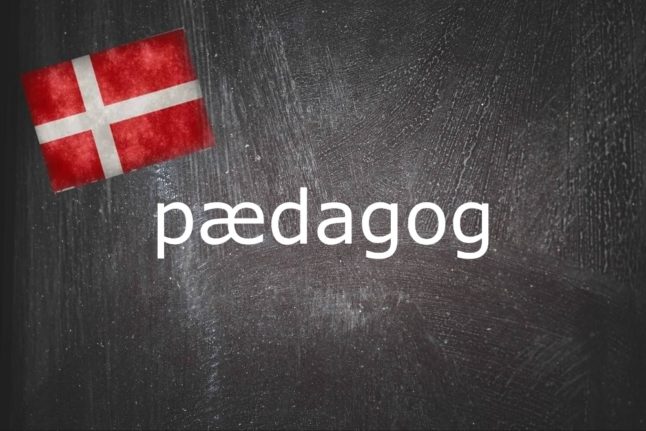What is udmærket?
Grammatically, the word udmærket has two components: ud (out) and mærket (marked) from the verb at mærke.
This verb can be used as to express feeling or being aware of something, for example, jeg kan mærke, at du er utilfreds meaning “I can tell you’re unhappy”.
It is also often used in the formulation at lægge mærke til, which means to notice something: jeg lagde mærke til, at bilen holdt på den anden side af vejen — “I noticed that the car was parked on the other side of the road”.
So what does udmærket actually mean?
Thinking about its literal translation will probably take you to “outstanding”, but udmærket is probably a closer equivalent of “excellent” in English. However, its use has evolved somewhat from generation to generation, meaning that it essentially now has a spectrum of meanings which can vary depending on the context, situation and speaker.
You might hear Danes of an older generation describe something as being “Ug” (saying the letters phonetically, “uuh-gee” with a hard ‘g’) as shorthand for udmærket. This is because of an old system once used for giving school grades — long before today’s numbered (and somewhat confusing) grading in which a “12” is the best of seven possible scores.
Under this old system, which was in use until the 1960s, the highest grade you could be given was an Ug, meaning udmærket godt or excellent. You can see here that udmærket is used as an adverb, not an adjective.
Why do I need to know udmærket?
As mentioned above, it’s a word that has seen its use evolve and adapt over time, which gives it an interesting range of nuances.
The traditional or older meaning of udmærket, as outlined above, means “excellent” or “very good” and is still common, including amongst younger generations.
However, you might also hear the word used in a context which can carry a hint of sarcasm or at least implied negativity, even if on the surface it sounds like it is being used in the more established sense. For instance, someone might describe the sandwich they were served at a cafe earlier that day as being udmærket when what they actually mean was that it was merely acceptable and could have been better. You’ll have to pay close attention to the context, tone and any elaboration made by the speaker to understand which meaning they are actually using here.
It’s important to be aware of these distinctions and don’t worry if you’re not always sure which one is being used. The word can even cause misunderstandings between Danes sometimes — for example, an older person might tell a younger person they have made an udmærket job of something, being sincerely positive, only for the younger person to think their efforts have been received with mild disappointment.
The newer use of udmærket was added to the Danish dictionary as recently as 2019, but has been widespread for longer than the last few years.
One final point: it’s also not uncommon to see udmærket spelled as udemærket, due to its pronunciation. The former is the correct spelling.
Examples
Har du set den nye sæson af ‘Borgen’? Det er udmærket, synes jeg.
Have you seen the new season of ‘Borgen’? I think it’s excellent.
Bilen kører udmærket, men motoren larmer når du kommer op i fart og radioen dur ikke.
The car runs okay, but the engine is noisy at high speeds and the radio doesn’t work.



 Please whitelist us to continue reading.
Please whitelist us to continue reading.
Member comments